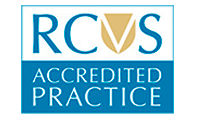24 hour contact: 01707 666297
RVC researcher joins leading veterinary group providing updated recommendations on the diagnosis and treatment of equine metabolic syndrome
Dr Nicola Menzies-Gow, Reader in Equine Medicine at the Royal Veterinary College, has joined with specialists from across the world to update the practical recommendations to veterinary professionals produced by the Equine Endocrinology Group on the diagnosis and treatment of equine metabolic syndrome (EMS), a common equine disease.

EMS is associated with a reduction in the normal response to insulin (insulin dysregulation) and places horses at high risk of developing laminitis, an extremely painful condition of the hoof that has significant welfare implications for owners.
Dr Menzies-Gow has been a member of the Equine Endocrinology Group (EEG) since 2016. The EEG is an international group of clinicians and researchers that work together to advance understanding of endocrine disorders in horses. The group contains key opinion leaders in the field who meet every two years to review diagnosis and treatment recommendations based on new research findings.
Following the most recent meeting, the EEG has now updated these recommendations and released their findings. The implications for horse health are that an accurate diagnosis should be made more quickly, and that every animal should receive optimum treatment based on up to date scientific knowledge.

RVC researchers have been studying laminitis for over 20 years and were among the first to define endocrinopathic laminitis, a condition often caused by EMS. Dr Menzies-Gow herself worked with Axiom Veterinary Laboratories in the development of a total adiponectin assay, which has been available to vets since 2019.
Dr Nicola Menzies-Gow, Reader in Equine Medicine at the RVC said: “It was pleasure to work with clinicians and researchers from across the globe to synergise our research on this common condition, which causes great distress to horses and their owners alike. The RVC has a long history of researching laminitis, and I am proud to be continuing this work.
“These updated guidelines are designed to help equine veterinarians correctly identify animals with equine metabolic syndrome and then recommend the optimum management for an individual animal, based on cutting-edge research.”
Research reference
To see the full set of recommendations download the PDF: Recommendations for the Diagnosis and Treatment of Equine Metabolic Syndrome (EMS) (pdf)
Notes to Editors
For more information please contact:
- Jasmin De Vivo (Jasmin.DeVivo@plmr.co.uk or rvc@plmr.co.uk
- Press Line: 0800 368 9520
About the RVC
- The Royal Veterinary College (RVC) is the UK's largest and longest established independent veterinary school and is a Member Institution of the University of London. It was the first in the world to hold full accreditation from AVMA, EAEVE, RCVS and AVBC.
- The RVC is the top veterinary school in the UK and Europe, and ranked as the world’s second highest veterinary school in the QS World University Rankings by subject, 2020.
- The RVC offers undergraduate and postgraduate programmes in veterinary medicine, veterinary nursing and biological sciences.
- In 2017, the RVC received a Gold award from the Teaching Excellence Framework (TEF) – the highest rating a university can receive.
- A research led institution with 79% of its research rated as internationally excellent or world class in the Research Excellence Framework 2014.
- The RVC provides animal owners and the veterinary profession with access to expert veterinary care and advice through its teaching hospitals and first opinion practices in London and Hertfordshire.

